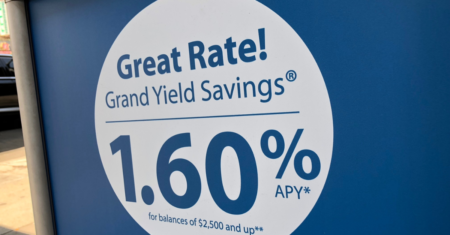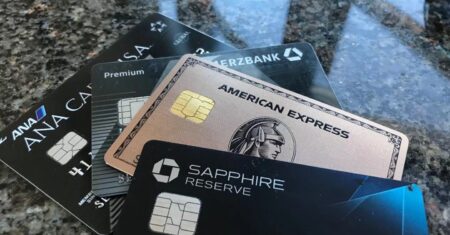
A debt consolidation loan is a type of loan that allows you to combine multiple debts into one loan with a single monthly payment and interest rate. A debt consolidation loan can help you simplify your debt management, reduce your interest costs, and pay off your debt faster.
Related articles
1- Principal Financial Group 401k
2- Certified Financial Advisor
There are different ways to get a debt consolidation loan, such as:
- Applying for a personal loan from a bank, credit union, or online lender. You can use the loan to pay off your existing debts, such as credit cards, overdrafts, or other loans. You will then repay the loan over a fixed term, usually between one and seven years, with a fixed interest rate and monthly payment. The interest rate and loan amount you can get will depend on your credit score, income, and debt-to-income ratio. Some lenders may charge fees for origination, late payment, or early repayment of the loan12.
- Using a balance transfer card to transfer your credit card balances to a new card with a low or 0% interest rate for a limited period of time, usually between six and 18 months. You can then pay off the balance without accruing interest during the promotional period. However, you need to be aware of the fees, terms, and conditions of the balance transfer card, such as the balance transfer fee, the regular interest rate after the promotional period ends, and the minimum payment requirement. You also need to have good or excellent credit to qualify for a balance transfer card23.
- Enrolling in a debt management plan (DMP) with a nonprofit credit counseling agency. A DMP is an agreement between you and your creditors to reduce your interest rates and monthly payments on your debts. You will make one monthly payment to the agency, which will then distribute it to your creditors according to the plan. A DMP usually lasts between three and five years, and you will have to close your credit accounts while on the plan. The agency may charge a small fee for their service.
Before you apply for a debt consolidation loan, you should consider the following factors:
- Your total debt amount and interest rate. You should calculate how much you owe in total and how much interest you are paying on your debts. This will help you compare different debt consolidation options and see how much you can save by consolidating your debts.
- Your monthly budget and cash flow. You should make sure that you can afford the monthly payment on the debt consolidation loan or plan. You should also have an emergency fund that can cover at least three to six months of living expenses in case of unexpected events or emergencies.
- Your credit score and history. Your credit score and history will affect your eligibility and terms for different debt consolidation options. You should check your credit report and score before applying for a debt consolidation loan or plan, and correct any errors or disputes that may affect your creditworthiness.
- Your financial goals and habits. You should have a clear goal for paying off your debt and a realistic plan for achieving it. You should also avoid adding more debt to your credit cards or loans while paying them off. Debt consolidation is not a quick fix, but a long-term solution that requires discipline and commitment.
debt consolidation loan calculator
A debt consolidation loan calculator is a tool that can help you estimate how long it will take you to pay off your debt and how much interest you will pay in the process. It can also help you compare different payment scenarios and find the best strategy for your situation.
To use a debt consolidation loan calculator, you need to enter some information about your debt, such as your current balance, interest rate, minimum payment, and any extra payment you can afford to make. The calculator will then show you how many months it will take you to pay off your debt, how much interest you will pay, and how much you can save by paying more than the minimum.
There are many online debt consolidation loan calculators that you can use for free in the U.S.
Here are some examples:
- Debt Consolidation Loan Calculator – Tesco Bank: This calculator creates a cost-efficient payback schedule for multiple debts using the Debt Avalanche method. It also shows you how much you can save with a Clubcard Price if you are a Clubcard member1.
- Debt Consolidation Calculator: This calculator helps you determine how long it will take to free yourself from debt. It also allows you to enter your desired payoff time frame and see how much you need to pay each month to achieve it2.
- Debt Consolidation Calculator | LendingTree: This calculator helps you compare the costs of consolidating your debt with a personal loan, a balance transfer card, or a home equity loan. It also shows you how much you can save on interest and fees with each option3.
- Financial Calculator: Debt Consolidation Calculator – AARP: This calculator helps you see how much money and time you can save by consolidating your high-interest debts into a lower-interest loan. It also shows you the impact of making extra payments on your debt4
How to consolidate debt with bad credit
Debt consolidation is a way of combining multiple debts into one loan with a single monthly payment and interest rate. It can help you simplify your debt management, reduce your interest costs, and pay off your debt faster. However, it can also be harder to qualify for and more expensive than regular loans if you have bad credit.
If you want to consolidate your debt with bad credit, you may have to consider some options, such as:
- Checking your credit report for any errors or disputes that may affect your credit score. You can get a free copy of your credit report from each of the three major credit bureaus (Equifax, Experian, and TransUnion) once a year through AnnualCreditReport.com. If you find any mistakes, you can contact the credit bureau and the creditor to correct them1.
- Applying for a secured, co-signed, or joint loan. These types of loans may be easier to qualify for, as they involve some form of collateral or guarantee from another person. A secured loan requires you to pledge an asset, such as your car or home, as security for the loan. A co-signed or joint loan requires you to have someone with good credit who agrees to share the responsibility for the loan. However, these loans also carry more risk, as you may lose your asset or damage your relationship with the co-signer or joint borrower if you fail to repay the loan1.
- Shopping around and pre-qualifying with different lenders. You can compare offers from various banks, credit unions, or online lenders to find the best deal for your situation. You can also pre-qualify with some lenders to see what interest rate and loan amount they may offer you based on a soft credit inquiry, which won’t hurt your credit score. However, you should be careful about applying for too many loans in a short period of time, as this may lower your score due to hard inquiries1.
- Enrolling in a debt management plan (DMP) with a nonprofit credit counseling agency. A DMP is an agreement between you and your creditors to reduce your interest rates and monthly payments on your debts. You will make one monthly payment to the agency, which will then distribute it to your creditors according to the plan. A DMP usually lasts between three and five years, and you will have to close your credit accounts while on the plan. The agency may charge a small fee for their service2.
Debt consolidation can be a helpful tool for managing your debt, but it is not a quick fix or a magic solution. You should also make sure that you have a realistic budget that allows you to pay off your debt while covering your essential expenses. You should also avoid adding more debt to your credit cards or loans while paying them off. Debt consolidation requires discipline and commitment to achieve long-term results.
I hope this information helps you learn how to consolidate debt with bad credit.
About the Author






0 Comments